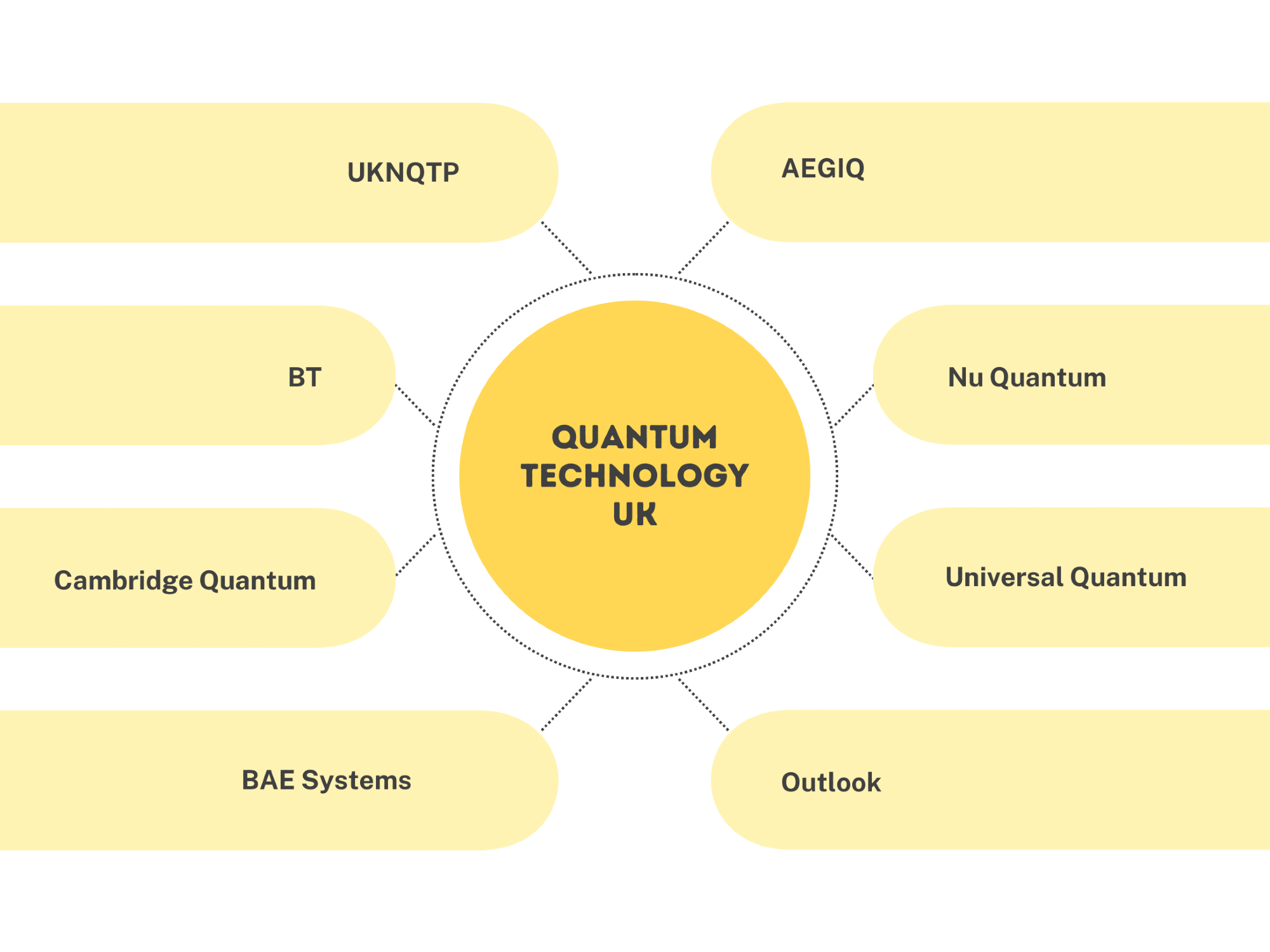 By Joe PicklesDec 19 2022
By Joe PicklesDec 19 2022
The UK’s network of prestigious universities has always made the country fertile ground for research and innovation. With interest and support from international businesses, multiple breakthroughs have already been made at UK startups and universities, and more should soon follow. The UK has an established presence in quantum cryptography, and the push for more universities to teach quantum tech will lead to a new wave of talent.
Government Investment
The UK National Quantum Technologies Program (UKNQTP) is the quantum tech collaboration led by the UK Government. Having received a total of £1 billion in funding so far, it seeks to connect industry and academics to help elevate the UK to the peak of quantum technology research. It funds start-ups, academics, and government research departments, while encouraging cooperation.
Multiple councils from UK Research and Innovation (UKRI) are helping to drive UKNQTP forward, as well as the National Physical Laboratory (NPL). These have each built labs dedicated to quantum technology: the National Quantum Computing center run by UKRI, and The Quantum Metrology Institute run by the NPL. UKNQTP is also working with the Ministry of Defense and GCHQ, both of which are interested in potential defense applications of quantum cryptography and computing.
UKNQTP is divided into four hubs, each specializing in a different field of quantum technology. While each hub has a home university, universities across the country contribute to these hubs, and work closely with industrial partners to achieve advances in quantum technology. The hubs are:
- QUANTIC, headed by the University of Glasgow, focused on advanced quantum 3D imaging.
- UK Quantum Technology Hub Sensors and Timing, headed by the University of Birmingham, focused on developing industry-ready quantum sensors.
- Quantum Communications Hub, headed by the University of York, focused on further developing Quantum Key Distribution and other forms of quantum cryptography.
- QCS, headed by the University of Oxford, focused on developing both hardware and software for quantum computers

Established in Sheffield in 2019, AEGIQ is small start-up that creates photon sources for use in quantum tech. The unique properties of photons on the quantum scale are fundamental to all quantum technologies, and AEGIQ have successfully developed and marketed a reliable photon source. They hope these can be utilized in hardware for quantum computers and sensors.
The BT Group, which has historically invested heavily into communications R&D, is one of the Quantum Communications Hub’s key partners. The company has researched numerous applications of quantum technology in communication, as well as extended the UK Quantum Network which is responsible for Quantum Key Distribution (QKD).
One of the current limitations of Quantum Key Distribution (QKD) is the distance over which a quantum key can be transferred before becoming unstable; BT is trying to extend this distance. In addition, it has joined an EU-led partnership with the goal of connecting QKD networks between nations, bringing quantum communications into a new phase.
Nu Quantum was founded in 2018, with the purpose of commercializing research done by the University of Cambridge. They are partnered with both BT and NPL and are working on improving end-to-end quantum cryptography. Their small team has brought together specialists from numerous areas and has already received significant attention from tech press and multiple awards.
Boasting the world’s largest team of quantum software researchers, Cambridge Quantum Computing has created multiple programs for using quantum computers. Their flagship product is TKET, the development platform with which they built all their other software. It is compatible with the most popular quantum hardware, and other quantum programming tools. Since its founding in 2014, CQC has developed quantum programs for computational chemistry, machine learning and cyber security.

Image Credit: Zapp2Photo/Shutterstock.com
Its successes in quantum software are promising, and the company now offers tailored quantum algorithms for business applications. The company is also a pioneer in the new field of Quantum Natural Language Learning, using quantum computers to try and understand and interpret linguistics. The company is part of Quantinuum and collaborates with companies from the US.
Based in West Sussex, Universal Quantum was founded in 2018 and is focused on building quantum computers. They use trapped ions as qubits (the units of data in quantum computers) and aim to build quantum computers which can be scaled up to use large numbers of qubits at once. They plan to achieve this through designing modular systems and have designed a novel method of connecting modules. Named UQ Connect, it uses electric fields to connect modules, and is faster and more reliable than any other connection method. The company has received a £58,000,000 contract from the German government to build a trapped ion quantum computer, which is impressive for such a small company.
BAE Systems, the largest defense contractor in Europe, is investigating the potential applications of quantum sensors. These applications include improving the precision of object sensing, and the possibility of building a navigation system that does not depend on GPS. Quantum sensors can detect minute changes in gravitational and electromagnetic fields, which could reveal concealed objects. The technology has already been tested by archaeologists to find goods buried underground, and BAE hope it can be employed by the military to find hidden enemy assets.
Outlook
UK startups have been highly successful in commercializing quantum technology so far, and the support of UKNQTP will maintain this momentum into the future. The collaboration on the quantum key distribution network is particularly promising, as companies large and small work on different areas of the tech. As mentioned before, many universities have joined forces to research quantum computing, and with record breaking startups and innovations, the UK is set to keep its lead in the quantum marketplace.
References and Further Reading
UKNQTP https://uknqt.ukri.org/
AEGIQ https://www.aegiq.com/
BT https://www.quantumcommshub.net/industry-government-media/collaboration-opportunities/case-studies/bt/
Nu Quantum https://nu-quantum.com/
Cambridge Quantum Computing https://cambridgequantum.com/
Universal Quantum https://universalquantum.com/
BAE Systems https://www.baesystems.com/en-uk/feature/quantum-leap
Disclaimer: The views expressed here are those of the author expressed in their private capacity and do not necessarily represent the views of AZoM.com Limited T/A AZoNetwork the owner and operator of this website. This disclaimer forms part of the Terms and conditions of use of this website.